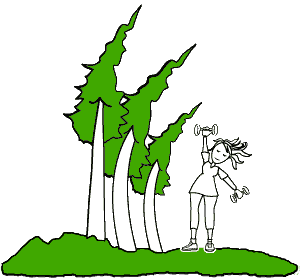So you fabulous women….. I want to put in a plug for SLEEP to help keep you fabulous! I received this info from the Dr. (sports and preventative medicine) who coaches my son’s cross country team who constantly pleads with the boys to get 9+ hours of sleep to get maximal response to their training thus maximizing the fitness benefits.
In a study appearing in the July issue of SLEEP, Cheri Mah, a researcher in the Stanford Sleep Disorders Clinic and Research Laboratory, has shown that basketball players at the elite college level were able to improve their on-the-court performance by increasing their amount of total sleep time.
It’s no secret that lack of sleep can have negative consequences. Extensive research has shown the impact that sleep debt has on cognitive function, mood and physical performance. But, as Mah and her colleagues point out in the paper, very few studies have looked at the opposite: the effect that sleep extension can have on performance. And few other groups have looked specifically at the effect of sleep on athletes.
While things such as nutrition and physical training are part of an athlete’s daily regimen, Mah said competitive athletes at all levels typically do not focus on optimizing their sleep and recovery. They are usually just told to get a “good night’s sleep” before a competition.“Intuitively many players and coaches know that rest and sleep are important, but it is often the first to be sacrificed,” she added. “Healthy and adequate sleep hasn’t had the same focus as other areas of training for peak performance.”
Mah began working with sleep expert William Dement, MD, PhD, professor of psychiatry and behavioral sciences, and they turned their attention to the men’s basketball team. Over the course of two basketball seasons, Mah and colleagues worked with 11 healthy players with a goal of investigating the effects of sleep extension on specific measures of athletic performance, as well as reaction time, mood and daytime sleepiness. The researchers asked the players to maintain their normal nighttime schedule (sleeping for six to nine hours) for two to four weeks and then aim to sleep 10 hours each night for the next five to seven weeks. During the study period, players abstained from drinking coffee and alcohol, and they were asked to take daytime naps when travel prohibited them from reaching the 10 hours of nighttime sleep.
At the end of the sleep extension period, the players ran faster 282-foot sprints (16.2 seconds versus 15.5 seconds) than they had at baseline. Shooting accuracy during practice also improved: Free throw percentages increased by 9 percent and 3-point field goal percentage increased by 9.2 percent. Fatigue levels decreased following sleep extension, and athletes reported improved practices and games. The findings suggest, Mah said, that it’s important for sleep to be prioritized over a long period of time, not just the night before “Game Day.” She called optimal sleep an “unrecognized, but likely critical factor in reaching peak performance.” She said the findings are applicable to recreational athletes and those at the high school, semi-pro or professional level.
Of course the benefits of sleep go well beyond our athletic performance. Some of the other surprising benefits of getting more shut eye are improved memory, less inflammation (inflammation is linked to heart disease, stroke, diabetes, and athritis; studies have found more inflammatory proteins in those who sleep less then 6 hrs ea. night), spurs creativity, better weight loss (dieters who are well rested lose more fat), can help reduce stress and can help you avoid accidents (Insufficient sleep for just one night can be as detrimental to your driving ability as having an alcoholic drink.
I know the thought of getting 9+ hours of sleep a night might make you laugh at the absurdity of actually pulling that off- but it is summer and most of us have a slightly more relaxed schedule including vacation time so this could be an ideal time to try for a little more shut eye and see what happens!
– Trainer Theresa
